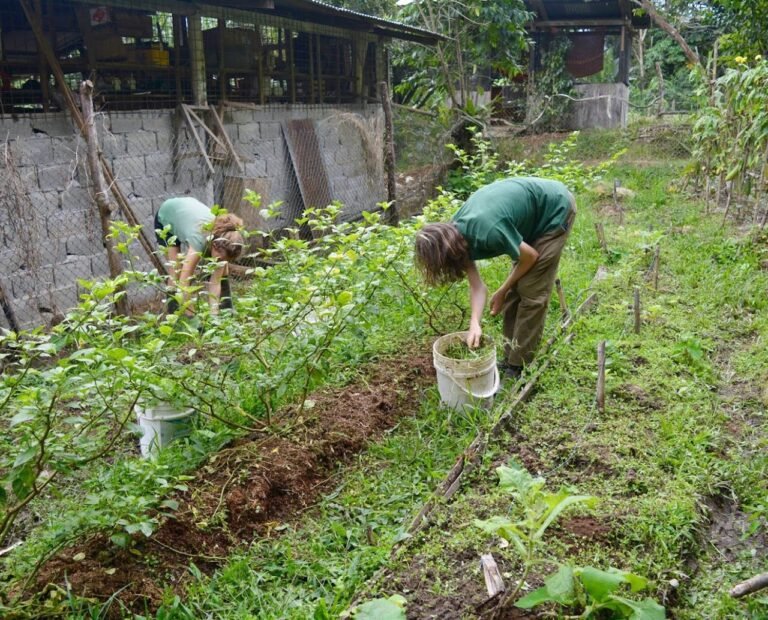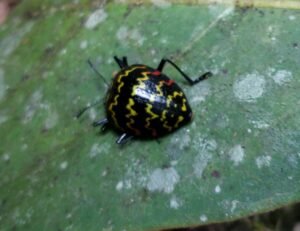volunteer!
Volunteer at Fruit Haven
Note: we are accepting volunteers!
Want to learn about permaculture and volunteer your time to a worthy cause?
If you’re interested in coming, please fill out the volunteer questionnaire here.
 If you want to stay long-term as a resident/community member, you must start by first volunteering for two months. After that you may become a resident, and after 3 months as a resident, you may become a community member. Note that at any point during this process, you have the opportunity to buy land in the community and start your own homestead.
If you want to stay long-term as a resident/community member, you must start by first volunteering for two months. After that you may become a resident, and after 3 months as a resident, you may become a community member. Note that at any point during this process, you have the opportunity to buy land in the community and start your own homestead.
Read more about the differences between being a volunteer, and being a community member here.
If you would like to volunteer remotely click here.
We are a permaculture fruit forest project in southeast Ecuador! Our goal is to be a successful example for other farms in the area to trust in sustainable methods of farming. We already produce many bananas, rollinias, papayas, and other fruits, and are currently planting dozens of varieties of exotic fruits from South America and all over the world.

We only accept volunteers who are vegan, as this is a vegan community. We also prefer to accept volunteers who have experience in / are interested in a raw food diet, and are able to mostly abstain from cooked foods, and consume primarily raw foods while they are here, as this is another important community value of ours. Usually volunteers and residents here are eating all raw foods. See this page for more details: Diet and lifestyle
Volunteers…
- Receive weekly workshops and participate in group activities based around the following topics: Care of fruit trees, mulching and soil health, soil amendments, biochar, compost systems, ground covers and other companion plants, planning tree placement, tropical fruit varieties and requirements of specific trees, basic banana care, basic papaya care, vegetable gardening in the wet tropics, nursery management and maintenance and more.
- Can eat a fare share of food produced from the farm for free, but anything beyond that must be purchased themselves from local markets or neighboring farm. We usually do a weekly community produce order to make it easy. Volunteers should expect to spend between $30 and $60 per week on food, but that depends on their personal tastes and spending habits.
- Receive a curated list of training videos regarding the permaculture techniques we use here. In addition to the videos, you receive hands-on instructions.
- Pay a $100 security deposit, which is returned after your stay.
- Pay $100/month includes use of facilities: pool, kitchen, bathroom, shower, campsite accommodation, and weekly instruction and workshops. (We also may have tent and bedding for rent or sale depending on availability). Why we charge money?
- Generally stay 1 to 3 months as a volunteer. After 3 months, volunteers can ask to become a longer-term community resident, see this page. For shorter stays $5/day rate is applied instead of monthly rate.
- Must bring your own tent, sleeping pad, sleeping bag and blankets etc. If you don’t have a tent, let us know (contact) and we may be have some for sale.
What to bring: see this page
Bugs
Some don’t have a problem with bugs, but some newcomers to the area are bitten by gnats/no-see-ums heavily. There are not many
mosquitoes. You may wish to bring a mosquito net which is sufficient for no-see-ums. The gnats like ankles and wrists, and the majority of bites can be avoided by simply wearing long sleeves and socks during the times of day that they come out (early morning, early evening, during/after a rain). Natural essential oils are effective (such as citronella, lemongrass, lavender etc) The temperature here is comfortable enough to wear long sleeves during that time with no issue.
What We Provide
We have a limited number of foam mats and tents that can be rented for $1/day that may be available upon request, please notify us if you’d like to rent a tent/foam mat, you should bring your own blanket/sleeping bag and sleeping pad, as well as tent if you are able because of limited availability. If you wish to rent a room please see this page and ask us about availability.
Accommodation
There are rental options to stay, see the photos and prices in this page: rooms/houses for rent click here
Regardless of where you stay, you are welcome to join volunteer workshops, group work, education or individual work.
Do We Charge Money?
We take $100 security deposit that is refunded and we charge $100/month or $25/week for our volunteer program. This is lower than local hostels or many other permaculture farms that provide a comprehensive education and community experience. This helps us pay the utility bills, tool maintenance, as well as upkeep of the community house, kitchen, garden, gravity-powered spring water system for the house, pool, and provide an experience where you learn everything you wanted to know about permaculture in the tropics, community living with NVC and consensus decision making process as well as other community events and activities.
 If you’d prefer to stay here with no volunteer work obligation and enjoy the tropical climate and fruits, have a look at our room rentals page. If you rent a room, you can still welcome participate in all volunteer activities and workshops if you’d like.
If you’d prefer to stay here with no volunteer work obligation and enjoy the tropical climate and fruits, have a look at our room rentals page. If you rent a room, you can still welcome participate in all volunteer activities and workshops if you’d like.
Security Deposit – While we like to hope that everyone is responsible, on rare occasions, people break things and do not offer to replace them, or steal things when they leave. To prevent community loss, we charge a $100 security deposit to any newcomer. You receive this deposit back when you leave. Read our security deposit policy here
Volunteer Work
Work generally falls into one of these categories:
- Agriculture/Permaculture – Planting trees, maintaining trees, clearing weeds by hand and with machete, mulching, planting, pruning, vegetable garden work.
- Nursery work – tending to baby trees/plants in the nursery
- Facilities maintenance – cleaning, organizing of the kitchen, pool, storage areas and other communal areas.
- Harvesting – picking fruits and vegetables, sorting, cleaning, packing and organizing of the harvested fruits and vegetables. Sometimes preparing communal meals together.
- Security – martial arts training, emergency first aid training, radio communication, gate/guard duty, night patrol
Group work takes place from Monday to Friday.
Volunteer Education – Education includes:
- Above-listed group activities with instruction and guidance.
- Plant ID tour – learn about different fruits we are growing and their companion plants
- Permaculture technique tour – Walk around and see our techniques in action.
- Biochar Workshop – Make your own biochar and learn about its magic.
- Talks on various subjects – For example, learn about which fruit trees require a defined dry season and how to get them to fruit in wetter climates. Or, how to design an area that is to be planted with fruit trees – plant spacing/layout, selection, contour lines etc.
- Curated instructional videos – We’ve selected (and made) some videos on permaculture topics that will give you the foundation of knowledge you need to get started.
Which Airport should I fly into?
 If you fly into Cuenca, you will have a 4.5 hour bus ride to get here. If you fly into Guayaquil, you will have a 9 hour bus rides to get here (2 different buses.) If you fly into Quito, you will have 14 hours of bus rides to get here (usually 2 different buses.)
If you fly into Cuenca, you will have a 4.5 hour bus ride to get here. If you fly into Guayaquil, you will have a 9 hour bus rides to get here (2 different buses.) If you fly into Quito, you will have 14 hours of bus rides to get here (usually 2 different buses.)
If you want a detailed description of how to get to this area (Gualaquiza) from the airport in Guayaquil or Quito, you can check out the “Detailed Arrival Instructions” page on the Amazon Fruit Festival website: Detailed Arrival Instructions
PLEASE READ: Travel Safety Tips
Do I need proof of ongoing travel?
Usually to fly into Ecuador from most western countries, you need to provide “proof of ongoing travel” to the airport that you are flying out of. This can be a return ticket. If you do not have a return ticket, you will need to go online and buy a bus ticket from Ecuador to Peru or Colombia. You can do that here if you select “Quito” as your origin city: https://www.cruzdelsur.com.pe/
From some other websites you can also buy a ticket from Loja, Ecuador to Piura, Peru on Cruz del Sur for around $20 or less. If you do not have proof of ongoing travel, they may not let you fly. There are also websites where you can “rent” a flight ticket that is automatically canceled after your travel, the fee for this is about $10. They provide a valid flight ticket, that is solely for the purpose of providing proof of ongoing travel


